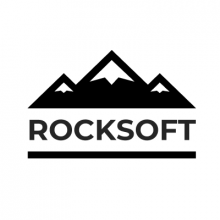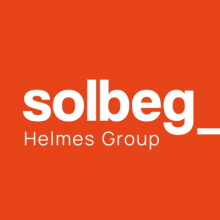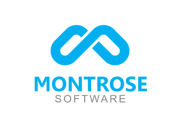Explore Top Flutter Development Companies in Poland
We Transform Ideas into Magical Experiences
IT outsourcing company - Web apps, Mobile apps, Websites, Webstores
Custom Software Design and Development
We deliver top-notch IT Services (Web development) & HR Outsourcing services. Professional full-stack IT experts based in Europe (Poland).
#1 Software House CHECK US get free consultation
Your Software Engineering Family
We are a reliable software developer and a trusted business partner for start-ups and companies of all sizes.
We are a team of skilled software engineers delivering top-quality solutions to meet your business needs.
Services:
We master the intersection of physical and digital
WebAR & eCommerce
Top healthcare and well-being app developers!
Technology Partner Enabling Innovation and Growth
Filter Flutter Development Companies in Poland by Cities
Find the right tech company near you or from a specific city. Some of the best companies might be located in smaller cities.
Find more Flutter Development companies around the world
TechBehemoths is the world's most advanced and user-friendly platform to match IT Companies with real clients without hustle.
The ICT Industry in Poland: General Profile
The Polish IT industry is one of the most important sectors of the national economy, with high fundamental principles and future growth prospects. Poland is one of the leading countries, next to Ukraine, in providing software development services in the CEE region. Additionally, Poland’s Software Development services market is expected to reach $13 billion by 2026. This sector had over 91,000 employees in 2024.
Some aspects, like state budget compensation, the specialist available, or the rapid development of the market, are influencing the industry. The country is also one of the winners when it comes to the global financial crisis, which helped it to offer products and services that have been in short supply lately – economic stability. That is the main reason why companies started to be interested in the Polish market. It also has an evolving startup ecosystem. The number of startups in Poland grew from 2,900 to 3,324 from 2018-2023.
According to PayScale, the average salary of a Polish web developer is around $19.12 K/year. On the other hand, the hourly rate of a Polish web developer is estimated to be around $19.11, which makes Poland a good destination for cheaper IT services and as well, a favorable country for sourcing out human resources and IT professionals.
Why Work With a Polish IT Company
Out of many reasons why Polish IT companies are worth working with, two of them are considered the most important.
First of all, the increasing market demand combined with the presence of tech giants such as IBM, Microsoft, HP, and Google contributed to Polish IT culture and development and increased the competitiveness of the country’s IT companies in Europe.
The second reason lies in the abundant human resources, which come in contrast with the neighboring countries. The number of IT professionals and web education in the country shaped the IT companies based in Poland as accessible and easy to handle.
What You Should Be Aware of When Working With Polish-Based IT Companies
On the other hand, the cheap hourly rates of Polish IT professionals made the country a great destination for outsourcing, leaving local companies not much space they afford to provide higher quality IT services.
Are Polish IT Companies Reliable?
Polish IT Companies invaded the European market with offers to beat, offering the full-service range in web design and development, app, software engineering, and marketing for prices that are twice, or even three times, lower than the average.
Although not all Polish professionals can provide services they are promoting, most of them do, but most of the time, the quality is proportional to prices, which tells a lot about the reliability of Polish companies. Nonetheless, Tech Behemoths recommends studying the market and connecting with as many companies as possible to find the one that suits you, just like in the case of any other country.
How Polish IT Infrastructure Relates to the Neighboring Countries
With an abundant labor force and tech professionals, as well as having lower prices than the western neighbouring countries, Poland's IT industry is a strong regional competitor, connecting Eastern Europe with Western Europe, both geographically and by value. Compared to Ukraine, Poland has way more market opportunities and geographical advantages, attracting more companies in the IT industry. On the other hand, most Polish IT professionals are being outsourced by German companies due to higher salaries and opportunities, which reveals that the country’s infrastructure has to progress until it is able to keep the workforce inside its borders. Poland’s tech sector has over 430,000 employees, while Germany has 1,26 million people in the ICT sector.
Overall, due to progress in the IT industry, Poland has the potential to become not only Europe’s largest tech hub but also one of the most skilled ones.
What is Flutter and what are its benefits for your projects?
Flutter is an open-source UI (User Interface) framework developed by Google for building natively compiled applications for mobile, web, and desktop from a single codebase.
It was officially introduced by Google in May 2017, although its development began earlier as an internal project named "Sky." It aimed to address challenges in cross-platform mobile app development by providing a consistent and high-performance framework for building native-like apps on iOS, Android, and other platforms. Flutter has since gained significant traction and popularity in the developer community.
Flutter has seen rapid adoption, thanks to its key advantages, such as a single codebase for multiple platforms, a rich set of pre-designed widgets, and fast development cycles. It has found use in various industries, including mobile app development, web development, desktop applications, and even embedded systems. Some notable apps developed with Flutter include Alibaba, Google Ads, eBay Motors, and more. Its usage continues to grow, and it has a strong developer community and ecosystem.
Flutter is versatile and suitable for a wide range of projects:
- Mobile Apps: Flutter is commonly used for developing mobile applications, including consumer apps, business apps, e-commerce apps, social media platforms, and more. It provides a native-like experience on both Android and iOS.
- Web Apps: Flutter can be used to build web applications, allowing developers to target browsers as well. This is still in the experimental phase (as of my knowledge cutoff date), but it shows promise for building responsive web interfaces.
- Desktop Applications: Flutter supports desktop platforms like Windows, macOS, and Linux. Developers can create desktop applications for various purposes, including productivity tools and utilities.
- Embedded Systems: Flutter can be used to create user interfaces for embedded systems and IoT (Internet of Things) devices, providing a consistent look and feel across different hardware.
- Custom UI Components: Flutter is often used to build custom UI components and widgets that can be integrated into larger applications, providing a cohesive design language.
Hourly rates for Flutter developers can vary significantly based on factors like location, experience, project complexity, and demand. On average, Flutter developers may charge anywhere from $25 to $150 or more per hour. Rates tend to be higher in regions with a higher cost of living, such as North America and Western Europe, and lower in regions with lower living costs, such as Asia and Eastern Europe.
It's important to note that more experienced and specialized Flutter developers with a strong track record may charge higher rates. Additionally, some developers or development agencies may offer fixed-price contracts for specific Flutter projects, which can vary widely based on the project's scope and requirements.
When hiring Flutter developers, it's essential to consider factors like their expertise, portfolio, and the complexity of your project. Getting multiple quotes and conducting interviews can help you determine a reasonable rate and find the right developer or team for your specific needs.
We have also written an extensive research of what skills you should be looking for when hiring Flutter developers.




















